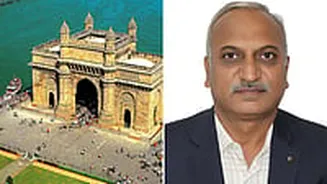A Stellar September
During the Navratri period, Mercedes-Benz India achieved exceptional sales figures, setting a new benchmark for the company. The luxury carmaker managed
to sell one car every six minutes during this time. This outstanding performance highlights the brand's strong position in the Indian market and the effectiveness of its strategies. The company's sales performance in September was unprecedented, showcasing its strong presence and the impact of its marketing strategies. The impressive sales were a direct result of strategies implemented, including the timely introduction of flexible financial solutions. The period between September 22 and September 30 saw a significant increase in demand, with the company selling approximately 270 cars each day, which translates to roughly 10 to 12 cars per hour, with each car averaging a price of Rs 1 crore. This robust demand underscored the appeal of the brand during the festive season.
Fueling the Surge
The surge in sales during Navratri was attributed to several key factors, notably the GST rate reduction for luxury cars that came into effect on September 22, coinciding with the start of Navratri. This policy change significantly improved consumer sentiment and provided the perfect timing to boost sales. Additional factors included strategic sales campaigns and financial solutions. The company's 'Dream Days' campaign, offering flexible financial options, also played a crucial role in attracting customers. A notable feature was the financing plan that allowed customers to pay low EMIs for eleven months and a higher EMI for just one month, making it easier for them to own a luxury car. These efforts, combined with the festive season's positive atmosphere, contributed to the remarkable sales figures. The confluence of favorable government policies and consumer-centric financial solutions provided a significant boost to sales.
Sales Performance Insights
The July-September quarter proved to be Mercedes-Benz India's strongest yet, with total sales reaching 5,119 units, slightly surpassing the 5,117 units sold in the same quarter the previous year. Notably, more than 2,500 cars, nearly half of the quarterly sales, were delivered in the final nine days of the quarter. In the first half of 2025, Mercedes-Benz India sold 9,357 units, marking a 4% year-on-year increase. The company anticipated strong sales during the Diwali season, bolstered by an order bank of nearly 2,000 units. In 2024, the company registered a 12% volume growth compared to the previous year, with 19,565 units sold. For 2025, the company expected calendar-year growth to remain flat despite the festive boost, highlighting the strategic importance of the Navratri period.
Flagship Model Success
The Mercedes-Benz flagship all-electric G580 Edition One, priced at Rs 3.1 crore, experienced a swift sell-out for the year. Bookings for the subsequent batch are now open, reflecting strong demand for this model. This success further underscores the company's strong position in the high-end electric vehicle segment. The rapid sell-out of the G580 Edition One signals a growing interest in luxury electric vehicles within the Indian market. The demand for this model highlights the market's evolving preference for premium electric cars. The company's focus on offering high-end models, combined with its strategic marketing efforts, is contributing to strong sales results across its lineup.
Strategic Initiatives
Mercedes-Benz India implemented several strategic initiatives to capitalize on the festive season. Under the 'Key-to-Key' program, the company targeted its top-end customers. Those awaiting the upcoming S-Class, scheduled for release next year, were encouraged to purchase the current model with the assurance of an easy exchange for the new version upon launch. This strategy helped maintain customer engagement and secure future sales. The healthy order pipeline gave the company confidence heading into Dhanteras and Diwali, anticipating continued strong sales. By offering attractive schemes and focusing on customer satisfaction, the company strengthened its market position and boosted its sales performance. These strategies aimed to not only increase immediate sales but also build lasting customer loyalty.





















